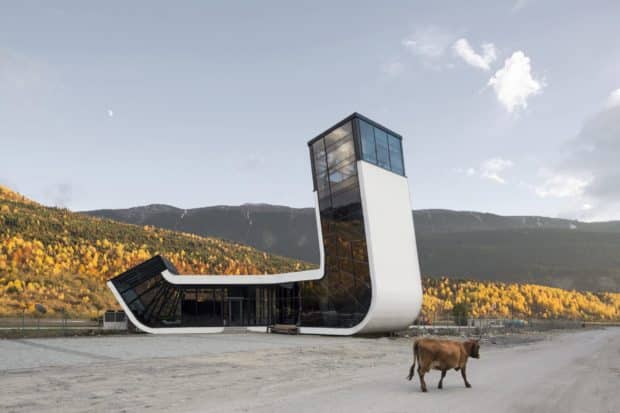Redeem Me by Rechel Hananashvili took the Chalet Mestia Award for Best Project at Georgia’s Svaneti International Film Festival nestling amid vertiginous mountains in one of highest villages in Europe. The film takes place in an Israeli-Georgian household where a 12-year old girl is adjusting to domestic turmoil.
Tea Vatsadze’s Gravity won the Best Project by a Female Director Award. Gravity sees donkey farmers taking over in a post-Soviet society. A Special Mention went to Abustumani by Mariam Karkashadze
Founded and headed by local filmmaker Mariam Khachvani (Dede) in 2021, this year’s event paid tribute to two-time Palme d’Or winner Ruben Ostlund and showcased a comprehensive retrospective of his film archive. During the closing ceremony he also received the festival’s Honorary Goddess Dali Award and gave a masterclass on his filmmaking techniques in the UNESCO awarded village of Ushvilli that stands at 3000 metres in stunning scenery
In the Short Film Competition two additional awards went to Timur Chopliani for Best Film with Its Not Far From Here and Kim Toress from Costa Rica who won Best Director for The Moon Will Contain Us
An international jury of programmers and producers presided over the two competitions, selecting the various winners.
A programme of four digitally restored Georgian classics from the silent period was also shown during open-air late-night screenings.
Here is the full list of the winners:
Pitching Forum Competition Awards
Chalet Mestia Award for Best Project
Redeem Me – Rechel Hananashvili (Georgia)
Best Project by a Female Director
Gravity – Tea Vatsadze (Georgia)
Special Mention
Abastumani – Mariam Karkashadze (Georgia)
Short Film Competition Awards
Best Film
It’s Not Far From Here – Timur Chopliani (Georgia)
Best Director
Kim Toress – The Moon Will Contain Us (Costa Rica/USA)
Honorary Goddess Dali Award
Ruben Östlund
SVANETI INTERNATIONAL FILM FESTIVAL 2024

